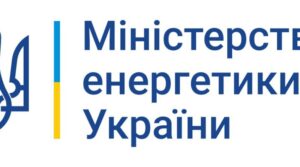
Ukrzaliznytsia (UZ) plans to raise ticket prices for SV and first class Intercity to partially compensate for losses from passenger transportation, said Serhiy Leshchenko, deputy chairman of the UZ supervisory board.
“We plan to raise dynamic pricing for SV and first class Intercity. This will partially improve the results, but not completely,” he said from the rostrum of the Verkhovna Rada, where he was summoned by deputies the day before, according to a correspondent from the Interfax-Ukraine agency.
Leshchenko noted that in order to avoid losses from passenger transportation altogether, it is necessary to increase passenger transportation prices by 3-4 times, which is impossible during the war.
The last time Ukrzaliznytsia raised prices was on February 1 this year for international trains to Poland and Hungary – by 17-37%. Thus, due to a reduction in discounts, the cost of tickets to Poland increased by 20-27% in 1st class “Intercity+” and SV carriages and by 9-27% in compartment carriages. The cost of travel on the most popular international trains: Kyiv-Warsaw increased by 37%, Kyiv-Budapest by 17% in SV carriages and by 21% in compartment carriages.
According to Ukrzaliznytsia’s expectations, which were presented in the 2026 state budget draft, losses from passenger transportation in 2025 will amount to UAH 20.8 billion, in 2026 – UAH 22.3 billion, in 2027 – UAH 24.7 billion, and in 2028 – UAH 29.4 billion.
According to the company’s results for 2024, losses in the passenger transport segment increased by UAH 2.4 billion, or 15.4%, to UAH 18.1 billion, which was covered by profits from the freight transport segment, which amounted to UAH 20.4 billion. At the same time, the company forecasts a sharp decline in freight transportation profits in 2025 to UAH 0.9 billion, moderate growth in 2026 to UAH 9.0 billion, in 2027 to UAH 12.6 billion, and in 2028 to UAH 19.3 billion.
Overall, in 2024, UZ increased its revenue by 11.1% to UAH 102.87 billion, but incurred a net loss of UAH 2.71 billion compared to a net profit of UAH 5.04 billion in 2023.

During a meeting with Estonian Defense Minister Hanno Pevkur on the sidelines of the JEF, Ukrainian Defense Minister Denys Shmyhal expressed his gratitude for the offer to allocate €3 million for the purchase and support of Starlink satellite communication systems.
As Shmyhal reported on social media, the ministers also discussed strengthening air defense, drone production, and the creation of joint defense enterprises.
“We appreciate Estonia’s participation in PURL. Ukraine is also ready to join the implementation of projects within SAFE, which will contribute to the mutual development of our defense industries,” Shmyhal said.
The ministers also discussed the training of Ukrainian soldiers as part of Operation Legio.
“I am grateful for Estonia’s offer to allocate €3 million for the purchase and support of Starlink satellite communication systems. We continue to insist on the confiscation of frozen Russian assets — the aggressor must pay.
I thank Estonia for its strong support for Ukrainians in this war,” Shmyhal emphasized.

34-year-old New York State Assemblyman Zohran Mamdani has won the New York City mayoral election, becoming the first Muslim to lead the city and the youngest mayor in more than a century. The victory has been confirmed by leading media outlets and agencies; His opponents were independent candidate Andrew Cuomo and Republican Curtis Slyva.
In his first speech after the results were announced, Mamdani said he would make New York a city for immigrants and vulnerable groups, naming affordable housing, transport and raising the minimum wage as his priorities.
He also publicly addressed Donald Trump. Donald Trump had previously called for a vote against Mamdani, supporting Cuomo, and threatened to limit federal funding for New York in the event of a victory for the democratic socialist; after the results were announced, he sharply criticised the mayor on social media.
Political analysts note that the victory of the left-wing candidate in the largest city in the United States and the response of the Republicans will indicate a further intensification of the confrontation between the two main parties at the federal and municipal levels in the run-up to the next electoral cycle.

According to the results for January-September 2025, cement producer Mykolaivcement increased its net profit 1.9 times compared to the same period in 2024, to UAH 455.3 million.
According to information on the company’s website, income from ordinary activities for the first nine months of this year increased by 33.7% compared to the same period in 2024 and amounted to UAH 1.9 billion. Gross profit grew by 48.1% and reached UAH 706.3 million.
According to the company, its retained earnings in January-September 2025 decreased by 80.6% to UAH 109.5 million. Current liabilities in the reporting period increased by 56.8% to UAH 7 million, and long-term liabilities by 0.6% to UAH 1.29 billion. The total amount of the company’s assets in January-September decreased by 23.1% to UAH 1.8 billion.
The company reported that in the third quarter, it produced 204.5 thousand tons of products worth UAH 520.4 million. Sales amounted to 210.7 thousand tons worth UAH 835.8 million. Raw materials account for 64% of the production cost structure, electricity for 15.1%, and packaging for 6.8%.
As noted in the report, in the third quarter of 2025, Mykolaivcement’s activities were significantly affected by martial law, exchange rate fluctuations, and the political and economic situation in the country. A decrease in the amount of construction work due to martial law and a decline in the purchasing power of potential customers led to a decrease in demand for products.
In addition, the company reported that the shortage of skilled workers, the slow pace of Ukraine’s economic recovery, and other macroeconomic and geopolitical factors pose significant challenges for the company.
According to the National Securities and Stock Market Commission (NSSMC), as of the first quarter of 2025, the sole shareholder of PJSC Mykolaivcement is the Dutch company CRH Ukraine B.V. (100%).
Mykolaivcement is part of the CEMARK group of cement manufacturers and the CRH group of building materials manufacturers.
CRH is a leading manufacturer of building materials in the world and the largest in North America and Europe. It has 3,200 businesses in 28 countries, employing approximately 71,000 people.
The company also has a presence in Asia. CRH’s American depositary shares are listed on the New York Stock Exchange.

Ukraine’s Ministry of Energy and Japan’s international cooperation agency JICA plan to strengthen cooperation in the supply of equipment for rapid repairs and mobile solutions to strengthen the energy resilience of frontline regions. This was discussed during a meeting between Ukrainian Energy Minister Svetlana Grinchuk and JICA Chief Representative in Ukraine Osamu Hattori on Wednesday.
‘I am pleased to welcome Osamu Hattori, Chief Representative of the JICA Office in Ukraine, to the ministry. This is Mr. Osamu’s first visit since his appointment. Therefore, we updated the current areas of cooperation with JICA and identified priorities,’ Hrynchuk wrote on her Facebook page.
She informed her colleague about the agreements reached with Kenji Yamada, Japan’s Minister of Economy, Trade and Industry, during her participation in the G7 Energy Ministers’ Summit in Toronto.
‘We discussed vectors for joint work with JICA in this context,’ she noted.
The possibilities for cooperation with Japanese energy companies and Ukraine’s use of Japanese technologies for the development of the energy sector were also discussed.
The minister thanked Japan in particular for supporting Ukraine’s energy sector with equipment, specialised machinery and gabions.

Shareholders of PJSC “Production Association ”Stalkanat” (Odesa) intend to allocate UAH 2 million 86,615 thousand for dividend payments at a rate of UAH 0.01 per share from the 2024 profit.
According to the company’s report in the information disclosure system of the National Securities and Stock Market Commission (NSSMC), an extraordinary shareholders’ meeting is scheduled for November 21 of this year.
This decision was made by the company’s supervisory board on November 4.
There is one item on the agenda: a decision on the payment of dividends. It is proposed to pay dividends from part of the net profit for 2024 in the amount of UAH 2 million 86 thousand 615.06 at the rate of UAH 0.01 per share by direct payment to shareholders by May 21, 2026. The payment will be made directly to the shareholders’ accounts.
As reported, Stalkanat has previously decided several times to pay dividends to shareholders from the 2024 profit.
In 2024, Stalkanat reduced its net profit by 34% compared to the previous year, from UAH 280.060 million to UAH 184.808 million, but increased its net income by 33.3% to UAH 4 billion 436.786 million. Retained earnings for 2024 amounted to UAH 437.815 million.
Stalkanat is one of the largest manufacturers of steel ropes and reinforcement strands in Eastern Europe. It is the leader in the production of metal products in Ukraine.
According to the NDU data for the first quarter of 2025, David Nemirovsky owns 50% of the company’s shares, Anton Mikhalenko (non-resident) – 23.7%, and Maria Kondratyuk – 23.1%. The company previously reported that Vitaliy Dubovich owns 3.199998% of its shares.
The authorized capital of PJSC Stalkanat currently amounts to UAH 35.472 million, with a share par value of UAH 0.17.